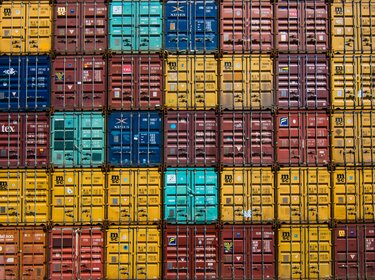With the CSRD, sustainability reporting will be placed on the same level as financial reporting. Companies will be obliged to publish detailed information on sustainability aspects and to have these assessed independently. In Germany, the CSRD must be transposed into national legislation by July 2024. Across Germany, around 15,000 companies are expected to be affected by the new reporting obligation - a significantly higher number than under the previously applicable CSR Directive Implementation Act (CSR-RUG). This poses new challenges not only for the reporting companies, but also for the verification system by external bodies. The EU Commission has recognised this fact and is striving for a more open and diversified audit market. To this end, the CSRD contains a right of choice for the member states to determine the eligible auditors for sustainability reporting.
The Directive leaves it open to the member states to allow so-called independent assurance services providers (IASP). Thus, in addition to the existing auditor who already performs the audit of the financial report, a second (different) auditor or another independent assessment body outside the profession (independent assurance services provider) can be engaged to verify the sustainability information.
Companies thus have the opportunity to choose from a larger pool of providers - both financial auditors and accredited assurance services providers. This increases the availability, but also the competition of audit service providers in the market. A concentration on large audit firms can thus be avoided and a level playing field and fair conditions of competition be created. In addition, greater independence of verifiers can be ensured, conflicts of interest avoided and an overall increase in audit fees averted.
A sufficient number of independent providers of assurance services is also needed in order to be able to carry out the annually growing number of audits of sustainability reports quantitatively and qualitatively at all - especially in economically strong countries like Germany. Small and medium-sized and listed companies would be most affected by any capacity bottlenecks, as the large auditing firms will presumably focus primarily on larger companies.
With their technical know-how and longstanding experience, the TÜV organisations, as independent providers of assurance services, can and want to make a decisive contribution to the successful implementation of the CSRD in Germany. In contrast to financial information, which is essentially based on the mapping of transactions, sustainability information cannot be verified solely on a past-oriented basis. The assessment of transition plans that companies have to prepare for the sustainable organisation of their economic activities is primarily about the evaluation of forward-looking statements. Specific expertise and corresponding technical experience are essential for this. As technical assessment service providers, the TÜV companies already have the necessary competencies and many years of experience in verifying sustainability information. Their services include, for example, certifications of environmental management systems, carbon footprint verifications, life cycle assessments and supply chain audits. Through their organised assessment system, the TÜV companies can ensure the future requirement profile of auditors who also want to verify sustainability reports with a quality level comparable to that of financial auditors. As independent providers of assurance services, TÜV companies can also complement those auditors who do not cover all areas of the sustainability criteria in the verification of sustainability information.
Sustainability reporting is just at the beginning. Further German and European projects to accelerate and consolidate the necessary sustainable transition will play an important role in the future and will require a sufficient number of professionally competent assessment service providers. The exclusion of qualified independent assurance service providers, which are accredited to the same relevant norms and standards, from the assurance market for sustainability information would therefore be neither economically nor technically expedient.
KEY DEMANDS
- Avoid capacity bottlenecks
- Open up the verification market and prevent market concentration
- Strengthen the internal market, counteract competitive disadvantages
- Use existing competences and capacities
- Use accreditation as the preferred means of demonstrating professional competence.




